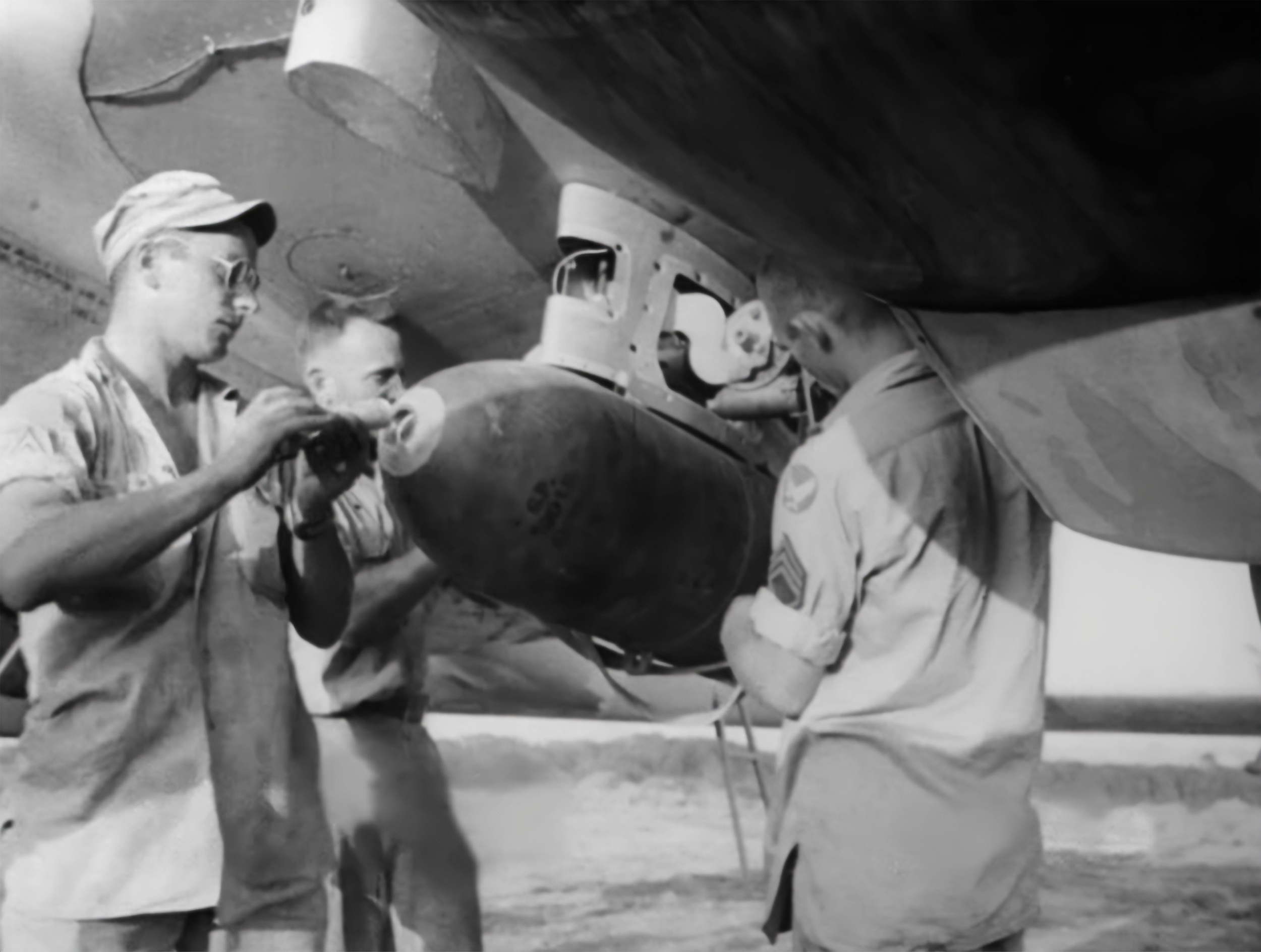
First week of April, 1943 at 2219 S Braddock Ave, Swissvale, PA; Mary's inscription on the back: "Had this here. Sent it so the boys could see what you looked like the week before you went into service. Love, Mom. Some people think this is a good photo of me." - Mary Alice Ward Hinchliffe

Spring/Summer 1943, Probably Sheppard Field; "I got indoctrinated and took the tests, and got the uniforms and all that sort of thing. And they tried to figure out what to do with me." - BWH

Spring/Summer 1943, Probably Sheppard Field; "I stayed there and went through Basic Training — they were tryin' to find a spot to put me, and it was a difficult job, because I had the college degree. They, at that time, had a program where they'd send soldiers to college. They said, 'You're too well-qualified! We don't want to send you to college, you've already been there!' - BWH

c. Summer 1943, Sheppard Field; "And there was a camp ... Sheppard Field. And the first night I slept in the hangar with a thousand other men. And then they sorted us out and we went to barracks and took Basic Training, which I took for a couple sessions." - BWH

c. Fall 1943, Mojave Desert; "We went to the Mojave by truck ... It was very primitive there, we lived in tents and simulated combat conditions" - BWH
![c. Fall 1943, Mojave Desert; "We went through this [special] training for several weeks, which included the two weeks bivouac on the Mojave Desert." - BWH](https://images.squarespace-cdn.com/content/v1/672a7a1450834460bc196679/9d9472df-c34a-4392-acd9-468aec737cb8/gpa_movaje_02_v2_cropped_edit.png)
c. Fall 1943, Mojave Desert; "We went through this [special] training for several weeks, which included the two weeks bivouac on the Mojave Desert." - BWH

Likely Los Angeles in 1943 during an unofficial weekend off, before his atomic bomb training began at Santa Anita that Monday

Likely Fall of 1943 while visiting Pittsburgh or Texas

c. Late 1944, Middleburg Island; Bay likely cross-legged, far right of truck bed; "It was a very small island. And we had to pitch our tents in among the where the planes were parked and where the ammunition was, and where the cans of gasoline were, and everything. And we just hoped that when the Japanese would come over, why, that they would miss us" - BWH
Likely Basil from the war film "Angels in Overalls," click to watch; "Earlier in the war, sometimes we'd hang them fairly early, but we didn't fuze them until they were just about ready to go. Because they were lethal, you know, when they were fuzed. So that was the last thing we'd do. So, sometimes they'd be warmin' up the planes, and the propellers would be goin' and everything, while you were fuzin' 'em." - BWH

Likely Palawan, 1945; "There's a picture showin' me an the truck here — had a winch on the back, with a cable," "That was a dandy... the truck was, it was a Chevrolet truck, and it really did a good job. It had an A-frame on the back that we lifted up the bombs with, that's why it was built the way it was" - BWH

Unknown date and airfield; "I mainly was furnishing ammunition and bombs and fuzes for the Air Corps, which as I said before was, the Air Corps was part of the Army in those days. And that's mainly what I did, is hang bombs on airplanes and fuse 'em and get the ammunition ready for the machine guns on the airplanes."- BWH

May, 1945, Palawan, PI; "We were moved to the island of Palawan ... which was down toward Borneo. It's a long slender island in the Philippines, mountainous. And it was the Leper Colony and the Penal Colony for the Philippines years before that ... We were there for most of 1945" - BWH

Mid/late 1945, Palawan, PI; "That picture was in Palawan, in the Philippines. The Army always did try to do something ... better for me, and they kept tryin' all the time. So eventually they come through with a Commission, and I got my orders to leave Palawan and go to Leyte and accept the commission, which I by this time realized that it wasn't gonna be long and I thought the war would be over. And the rumor was, I don't know if it was true or not, but the rumor was that if you accepted a Commission you were stuck for another two years in the Army ... I didn't like the idea of that" - BWH

1945, Palawan, PI; Inscription likely Bay's mother's; "There's a snapshot of me and my so-called office, where I sat on bomb crates and had a temporary field desk. And I had to keep record of all these stupid things. And we used to have a saying that, 'When the weight of the paper reached the same weight of the ammunition, that's when you knew you were finished.'" - BWH

Unknown date and location; "We were in the 347th Fighter Group, which had three or four squadrons in it" - BWH

1945, Palawan; "The 339th Fighter Squadron was the best Fighter Squadron in the Pacific" - BWH

1945, Palawan; Inscription on back: "Left to Rt: - Me + Fello tentmates Herman Wagner (Stndg.), Leroy Glidden, Jack Hickey, Me, John Keating (Standing)"
